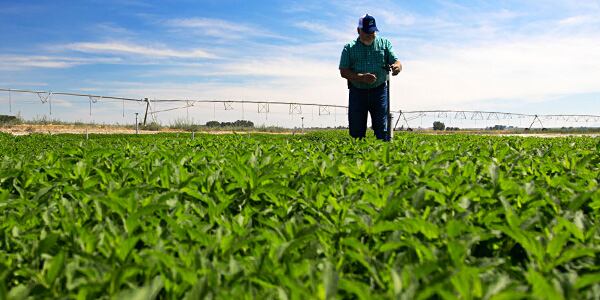Learn why regenerative practices will help support agriculture -- and address corporate ESG goals
Numerous brands are starting to leverage sustainability claims and stories as consumers are more knowledgeable about climate concerns and want their choices to make a positive impact on the environment.
According to insight from Nielsen IQ culled from its report, The Changing Climate of Sustainability (2022), during the upcoming five years, it is expected that several factors (such as the economy, increased energy costs and more) will pressure brands to incorporate and adhere to sustainable business models to be attractive to consumers. Nielsen IQ’s report states that the next five years “will bring dramatic change as companies transform to meet new demands, guidelines and realities of doing business.”
With its forward-thinking re:generations™ program, ADM can help customers start to address their climate goals both to advance their corporate ESG goals, and to enhance their brands images with consumers.

Why Sustainability is Critical for Brand Health
According to Nielsen statistics (July 2021 through June 2022) products with sustainability claims rocketed 36% faster than those without claims and dominated with 55.5% share of sales in 2022 compared to 44.5% of products without sustainability claims. From 2018 to 2022, the retail share of products with sustainability claims grew 18%.
Regenerative agriculture, meanwhile, is gaining a foothold in consumer consciousness. According to The Hartman Group's report, Sustainability 2021, 57% of US consumers are aware of regenerative agriculture, a deep incline of 10 points from 2019; and 68% say that products made from regenerative agriculture practices increases likelihood of purchase. Interestingly, sustainability claims have a more widespread and deeper influence on actual purchase decisions overstated intent to purchase. ADM’s proprietary research has shown that when it comes to sustainability claims, souring claims such as “sourced from regenerative agriculture” perform strongest.
ADM’s market researchers placed consumers in front of a virtual shelf to conduct a choice analysis, meaning comparing observed behavior to stated behavior (answering questions about how they would purchase). In short, the top choices (i.e., actual importance) were benefit and sustainability claims compared to stated choices, which ranked sustainability a bit lower.
“This market research is compelling because it demonstrates reality of choice; consumers tend to select products with sustainability oriented claims,” asserts Liz Mohr, ADM Director of Marketing and Consumer Insights. “They likely see multiple benefits for themselves, the environment and farmers.”

How ADM Leads the Way
ADM can help its customers start to advance their climate goals in a fairly turnkey approach. ADM works with growers to implement field level practices that have been shown to reduce GHG emissions improve soil health and water quality. Thus in turn, as ADM reduces GHG emissions at the farm level, it helps downstream brand partners to reduce their scope 3 emissions.
Sam Minardi, ADM Global VP Marketing for Ag Services and Oilseeds, comments, “We envision a future built on millions of acres of regenerative agriculture programs to deliver an expansive portfolio of sustainable solutions that customers will gravitate to.”
Regenerative agriculture is based on indigenous ways of land management that are adapted to local and physical conditions and culture. There are five principles of regenerative agriculture that ADM focuses on. These being:
- Maintain living roots in soil through using cover crops.
- Maximize diversity of crops, soil and pollinators.
- Minimize soil disturbance through conservation tillage.
- Continuously cover bare soil with cover crops and no or low tilling.
- Responsibly manage inputs such as fertilizers and pest control.
Further, the global supplier is expanded its re:generations™ program to encompass more than a million acres of soy, wheat, corn, peanut, sorghum in North America.
Getting Involved with ADM’s re:generations™ program
There are several powerful reasons to partner with ADM to enjoy the opportunities that its re:generations™ program provides your brands and company.
According to Paul Scheetz, ADM Director of Climate Smart Ag, ADM works with customers to understand their climate goals and analyze how regenerative agriculture can help address some of those goals . “Once we understand goals and objectives, we map our customer supply sheds and partner to implementing regenerative agriculture within their supply chain.”
ADM is aligned with Field to Market, an alliance of farmers, agribusiness companies, manufacturers, retailers, academics, and public sector representatives whose mission is to unite the supply chain to deliver sustainable outcomes in agriculture. Additionally, a key partner is Farmers Business Network, an independent agricultural tech and commerce platform that improves environmental outcomes. ADM’s project partners include conservation agencies, universities, and non-government environmental organizations.
To learn more about how partnering with ADM can help you achieve your climate goals, visit adm.com/sustainability.








